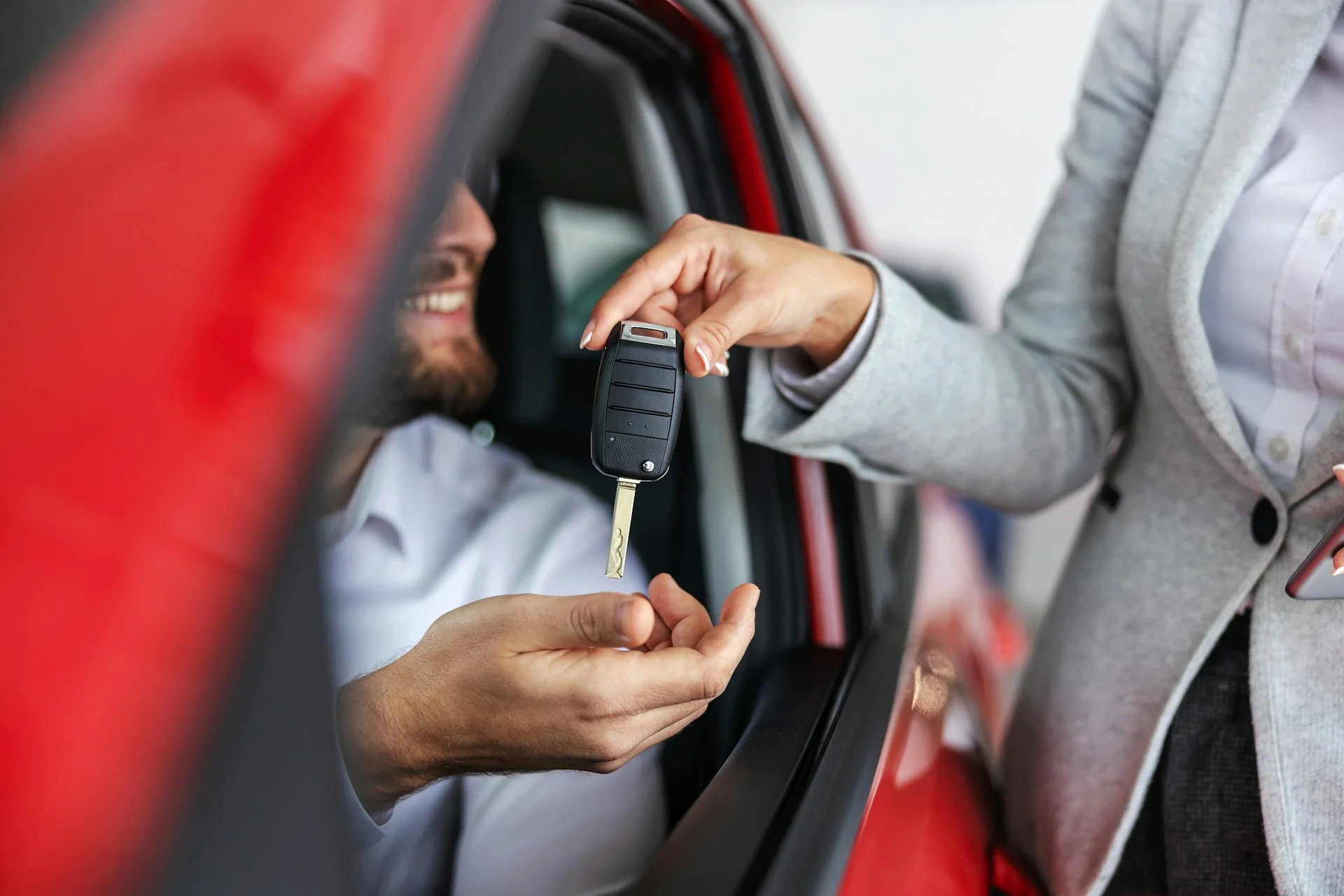Learning how to drive on paper is fairly easy, but getting on the road is a whole different story. It does not matter if you are a new driver at seventeen or thirty-seven, the rules of the road apply to everyone. Here are some driving tips that will have you go from new driver to an experienced one in no time.
1. Get comfortable
You should always be paying attention to what's going on while you're driving, but before you start driving for the first time it's a good idea to get to know your car and get comfortable in it. And by getting comfortable, that doesn't mean to kick your feet up, put your seat down, and relax. Comfortable in this sense means you feel safe and secure enough to start driving.
Adjust the driver's seat
The placement of your driver's seat may not seem like a big deal, but it makes all the difference. From the driver's seat, you should be able to reach the steering wheel and the brake pedal with ease. So you should move the driver seat forward enough where you can easily reach all the necessary functions while driving. And while you are adjusting your seat, adjust your mirrors as well. Though you will still have blind spots, you should still be able to see a good amount of the road and other cars.
Getting familiar with the steering wheel, gas pedal and brake pedal
You never want to be in a situation where you are struggling to reach for the steering wheel, brake pedal or gas pedal. These three functions are what make your vehicle move while you're driving, so be gentle with them. When you adjust your driver's seat, your hands and feet should naturally fall on the steering wheel and pedals.
Put on your seat belt
Seriously, put your seat belt on before you begin driving. Even if your driving less than a minute up the road, it makes all the difference.
2. Learn all the rules of the road
Learning the rules of the road is not just for driving classes, you now need to take all these rules and apply them when your are actually driving your vehicle. These rules are here to not only keep you, the driver, safe, but also the countless other drivers on the road.
Road signs

Be very aware of road signs and what they mean when you are behind the wheel
Be very aware of road signs and what they mean when you are behind the wheel. There are huge differences between yield signs and stop signs. With a yield, you don't have to stop if you are one hundred percent certain that no car is coming, but with a stop sign you need to come to a complete stop. Even if your are the only driver on the road. You may come across a particular road sign that you are unfamiliar with and on that case, slow down and try driving a little more cautiously. Take time to learn what that road sign means so you know what to do in the future. A good driver also keeps track of the speed limit and the fact that it can change depending on what roads you are driving. Speed limits can change while driving on the same road.
Changing lanes
Changing lanes seems to scare new drivers more than almost anything else. It does seem a little daunting going from one lane of cars to the others, but all you need to do is be calm, use your mirrors and take control. If you are going to change lanes, then do so. Having hesitation can cause other drivers on the road to become confused and start putting you in a panic. So when your behind the wheel and need a lane shift, put on your turn signals. Your turn signals indicate to other drivers that you are going to change lanes and gives them enough time to either slow down or speed up depending on the situation. Make sure to also check your mirrors and look behind you because changing lanes is an easy way to miss your blind spots. For new drivers, it is best to stay in the right lane of traffic. Most drivers agree that the left lane tends to be more for an experienced driver that can be comfortable with higher speeds and if you are not comfortable yet, avoid it. You can get wherever you are trying to get to while using the other lane.
3. Stay focused
Let's face it, accidents happen. And while you can do everything right, other drivers on the road could be the cause. This is something that all new drivers need to understand, other cars exist on the road and you need to not only be aware of what you are doing, but what the other driver is doing as well. So to make sure you are being safe, you need to get rid of any and all distractions. Do not go on your cell phone if you do not need it. This is a problem with every driver, but more with teen drivers. Now people use GPS to get around, so if you are going to use your mobile phone, make sure it's in a spot where you can see the directions and the road ahead. Never put your cell phone, or anything that needs your attention that's not the road, in your passenger seat. Turning your head away while your behind the wheel to face the passenger seat is extremely dangerous and you can put yourself into a potentially dangerous situation. Most car crashes happen because drivers aren't paying attention and lose control of the vehicle. If you are driving for the first time, you have to realize you use all your senses when doing so, so be alert.
4. Emergency vehicles
Not only do new drivers need to be aware that they are sharing the road with other drivers, but also first responders. If an ambulance is driving down the road with their warning lights going off, then you as a new driver needs to slow down, pull over, and wait for the ambulance to safely pass you by. Same goes for fire trucks and police cars. Also know that driving for the first means that at some point you will be pulled over by a police officer. Don't panic, it happens to everyone. You may have been pulled over for going over the speed limits, driving in the opposite direction, or you accidentally drove past a particular road sign when you weren't supposed to.

New drivers need to be aware that they are sharing the road with other drivers
Regardless of the reason, safely pull your car over to the side of the road and wait for the officer. Do not do anything until the police officer comes up to your car and starts to talk to you. A lot of the time people get pulled over for driving defensively. What that means is that you were tailgating another driver too closely or driving too fast and preventing them from changing lanes. While an officer may understand that driving for the first time means you don't know all the rules of the road, getting short or nasty with a police officer is a one way ticket to getting a ticket. So if you see a cop on the road, go the speed limit.
5. Get behind the wheel of your car
The only real way to get comfortable behind the wheel and feel like an experienced driver is to just drive. Drive down familiar roads, even just for practice, until you feel like you mastered them. Turn unfamiliar roads into familiar roads, each time you drive you should be better than the last. Strengthening your driving skills can help you prevent a serious accident in the future and the more and more traffic you experience, the more comfortable you become. And with comfort, comes skill.
6. Never drink and drive. Ever
This is for all drivers. It does not if you are driving for the first time or the one hundredth, never drive while intoxicated. There is never a good excuse to drive while under the influence. You can either call a taxi or Uber, call a friend or relative to pick you up, walk home and get your car later, or even sleep it off in your car, just make sure to never drink and get behind the wheel. Not only are you responsible for your own life, but countless others on the road. And for teen drivers, you might feel like your parents would be mad at you for drinking, but they would so much rather drive you home while your drunk, as opposed to getting a call that will ruin their lives forever. Seriously, never drink and drive.
On the road, again
Driving is a privilege, not a right. When you get behind the wheel driving for the first time, you need to understand that is a huge responsibility. Yes, driving can be and is fun, but it's only fun when you follow the rules of the road and make sure its a safe place for both yourself and other drivers that share it. For more insights from RateWorks, on driving and auto refinance, check out our blog here.


.webp)









